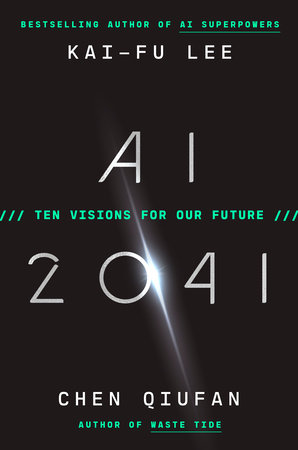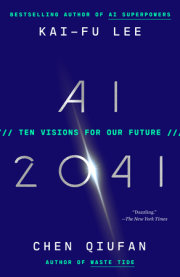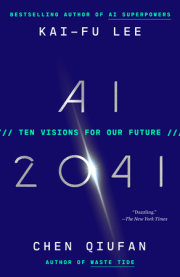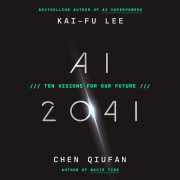Introduction by Kai-Fu Lee: The Real Story of AI
Introduction by Chen Qiufan: How We Can Learn to Stop Worrying and Embrace the Future with Imagination
One: The Golden Elephant
• Analysis: Deep learning, big data, internet/finance applications, AI externalities
Two: The Gods Behind the Masks
• Analysis: Computer vision, convolutional neural networks, deepfakes, generative adversarial networks (GANs), biometrics, AI security
Three: Twin Sparrows
• Analysis: Natural language processing, self-supervised training, GPT-3, AGI and consciousness, AI education
Four: Contactless Love
• Analysis: AI healthcare, AlphaFold, robotic applications, COVID automation accelation
Five: My Haunting Idol
• Analysis: Virtual reality (VR), augmented reality (AR), mixed reality (MR), brain-computer interface (BCI), ethical and societal issues
Six: The Holy Driver
• Analysis: Autonomous vehicles, full autonomy and smart cities, ethical and social issues
Seven: Quantum Genocide
• Analysis: Quantum computers, bitcoin security, autonomous weapons and existential threat
Eight: The Job Savior
• Analysis: AI job displacement, universal basic income (UBI), what AI cannot do, 3RS as a solution to displacement
Nine: Isle of Happiness
• Analysis: AI and happiness, general data protection regulation (GDPR), personal data, privacy computing using federated learning and trusted execution environment (TEE)
Ten: Dreaming of Plenitude
• Analysis: Plenitude, new economic models, the future of money, singularity
Acknowledgments
Index







